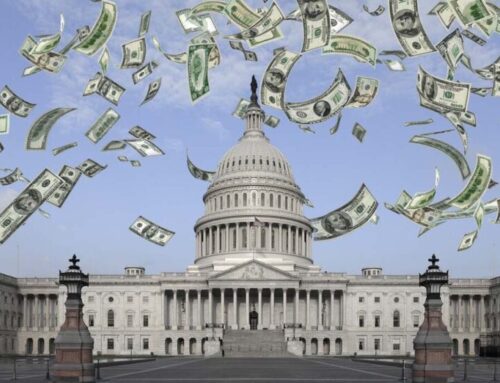Several weeks back I predicted that the appropriations season would be a window into Congressional dysfunction. But even accounting for my pessimism, I would never have guessed the summer Congressional session would end with such a resounding THUD. Here we are in the August recess, and not a single appropriations bill has been sent to the president's desk.
The Transportation, Housing and Urban Development (or THUD) appropriations bill includes all sorts of funding streams that should make it relatively easy to pass – maintenance of our highway, rail and air systems are popular even among many small government advocates. (Remember how air traffic controllers were one of the first exemptions from the across-the-board cuts of sequestration because of the great fear of flight delays?)
But last week neither the Senate nor the House could assemble sufficient support to even bring the THUD appropriations bill to a final vote. In the Senate, supporters failed to gain 60 votes to bring debate on the bill to a close, and in the House leadership pulled the bill from the floor instead of risking another embarrassing loss like the farm bill defeat back in June.
What made these bills so hard to pass? The House bill cuts current spending by $4.4 billion, including eliminating some programs altogether and slashing others. These cuts were consistent with Budget Committee Chairman Paul Ryan's budget, which shifts the evenly split cuts outlined in the Budget Control Act (which brought us the sequester) away from defense to the domestic discretionary budget. The vote in the Appropriations Committee was along party lines, with not a single Democrat voting to advance the bill to the floor.
But Republicans have a majority of the House, so Democratic opposition is not sufficient to kill a bill. Among the Republicans, some spending hard liners thought the $4.4 billion in cuts did not go far enough, while others saw the cuts as too deep. In the end, House leadership could not be sure they would hold enough of their caucus together to pass the bill. The failure of the bill even prompted Appropriations Chairman Hal Rogers, R-Ky., to say “I believe that the House has made its choice: sequestration – and its unrealistic and ill-conceived discretionary cuts – must be brought to an end.”
In the Senate, the drama played out a little differently. The Senate bill ignored the Budget Control Act level cuts, allocated $10 billion more in spending than the House THUD bill and attracted bipartisan support in the Appropriations Committee. Senate Republican leadership used the higher spending to encourage opposition, and in the end the bill couldn't garner the 60 votes needed to bring the vote to the floor, even losing five of the six Republicans who voted for the bill in committee.
What's next? The failure of the THUD bill made it all but certain we won't see the transportation funding bill again until it is rolled into a larger continuing resolution at the start of the new federal fiscal year on October 1. Nothing that has happened since this Congress started in January suggests that the deep divisions between the parties (and even within the parties) have narrowed. Nor is their evidence to suggest that star statesmen and dealmakers will emerge from the House and Senate and craft deals that will allow the country to move forward. (Senator Susan Collins, R-Maine, gets kudos for trying).
During this next month, when your member of Congress holds a town hall or shows up at your local coffee shop to interact with voters (or even just to get coffee), ask what he or she will do to make Congress work better. When Congress can't perform even its most basic constitutional duty of passing the appropriations bills, the only way we'll get more leadership is if constituents demand it.
Ryan Alexander is the president of Taxpayers for Common Sense.











Get Social